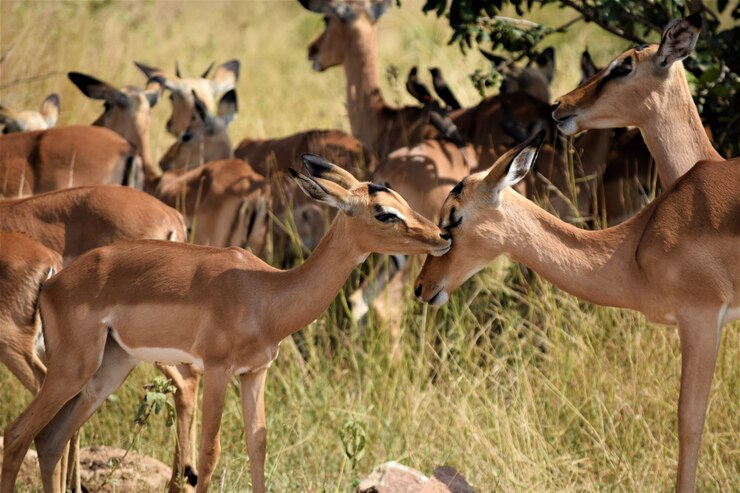Wildlife ranching in South Africa refers to the practice of privately owning and managing wildlife on designated land. It has gained prominence in recent years as a strategy to balance conservation efforts with economic viability in the country’s wildlife sector. This approach involves the breeding, maintenance, and utilization of wildlife species for various purposes, including tourism, hunting, and the sale of live animals or their products.
Conservation is a fundamental aspect of wildlife ranching in South Africa. Many private wildlife ranches prioritize the conservation of indigenous species, including threatened or endangered wildlife. By providing suitable habitats and implementing sustainable management practices, these ranches contribute to the preservation of biodiversity and ecosystems. They often serve as important sanctuaries for rare and vulnerable species, playing a crucial role in their protection and recovery.
Moreover, wildlife ranching promotes conservation by creating financial incentives for landowners to conserve wildlife and their habitats. Through tourism and other activities, ranches generate revenue that can be reinvested in conservation efforts, such as anti-poaching measures, habitat restoration, and wildlife research. This economic viability helps to ensure the long-term sustainability of conservation initiatives.
The economic benefits of wildlife ranching are substantial. Wildlife-based tourism is a significant contributor to South Africa’s economy, attracting both domestic and international visitors. Tourists are drawn to the country’s diverse wildlife, and private game reserves offer unique experiences, including game drives, guided walks, and luxury accommodations. These activities generate income for wildlife ranches and surrounding communities, leading to job creation, local development, and poverty alleviation.
Furthermore, trophy hunting is another aspect of wildlife ranching that generates revenue. Controlled and regulated hunting of certain species can contribute to wildlife conservation by providing funds for conservation programs and incentives for local communities to protect wildlife populations. By carefully managing hunting quotas and ensuring sustainable practices, wildlife ranches can maintain healthy populations while benefiting economically.
However, wildlife ranching is not without its challenges and controversies. Critics argue that certain practices, such as captive breeding and canned hunting, may undermine the ethical and conservation objectives of the industry. Canned hunting involves hunting animals in confined spaces, often with little chance of escape, which raises concerns about animal welfare and fair chase principles. Such practices can tarnish the reputation of the broader wildlife ranching sector and impact its long-term sustainability.
To address these challenges, South Africa has implemented regulations and standards to ensure responsible wildlife management. The government, along with conservation organizations, promotes best practices, transparency, and ethical guidelines for wildlife ranching operations. These measures aim to uphold animal welfare, preserve biodiversity, and maintain the integrity of the industry.
Wildlife ranching in South Africa plays a crucial role in balancing conservation and economic viability. By creating financial incentives for landowners and communities to protect wildlife, it contributes to the preservation of biodiversity and ecosystems. Through tourism and regulated hunting, wildlife ranches generate income that supports conservation efforts and local economies. However, careful regulation and responsible management are necessary to address ethical concerns and ensure the long-term sustainability of the industry.
Join 'Farmers Mag' WhatsApp Channel
Get the latest Farming news and tips delivered straight to your WhatsApp
CLICK HERE TO JOIN






